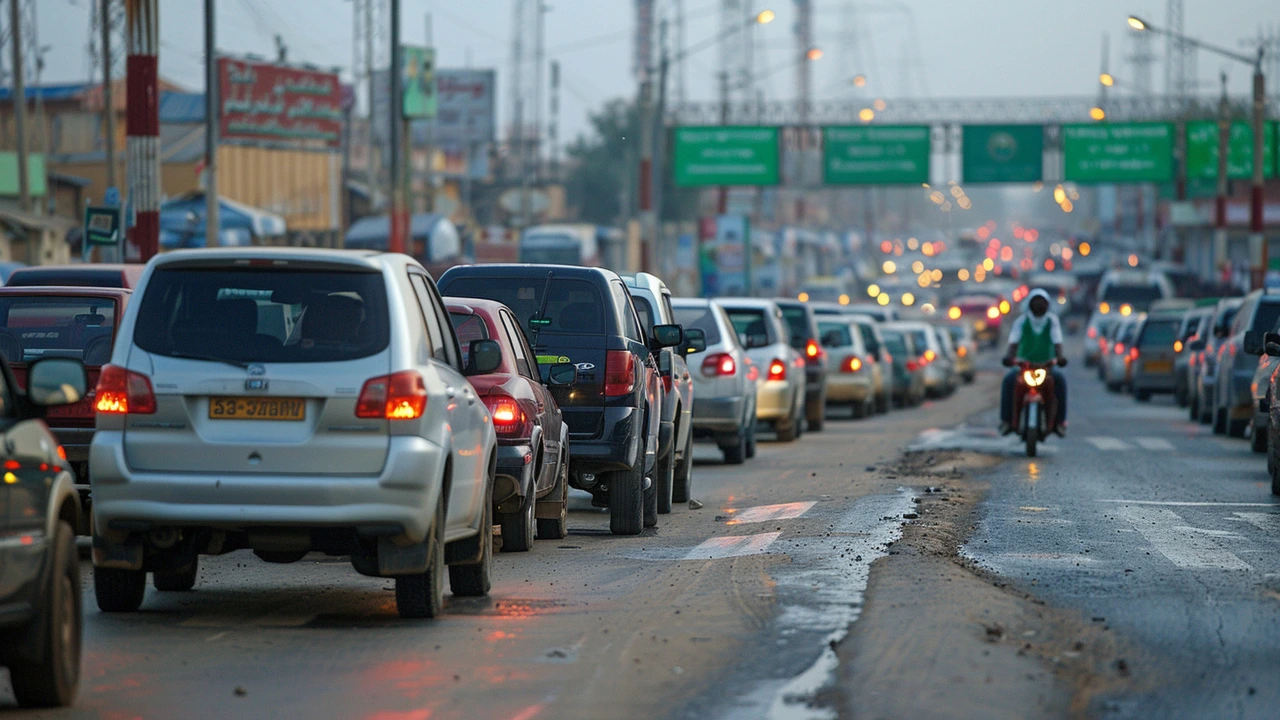
Overview of the Fuel Scarcity Crisis in Nigeria
The streets of Nigeria are facing an unprecedented challenge as fuel scarcity grips the nation, leaving motorists and commuters alike in a state of frustration and uncertainty. Abuja, the capital city, emerges as the epicenter of this crisis, with other urban areas also significantly impacted. This has led to enormous queues at gas stations, some stretching for kilometers, as anxious citizens wait hours, and sometimes days, to fuel their vehicles.
The shortage of petrol has led to a substantial increase in transportation fares, often doubling the usual costs, further straining the daily budgets of the average Nigerian commuter. The monopolistic sale of petrol by the Nigerian National Petroleum Corporation's (NNPC) retail outlets at a uniform price of N617 per litre marks a significant change in the landscape of fuel pricing, which once saw more competitive rates from various independent marketers.
The Role of NNPC in the Crisis
Among the central figures in this unfolding crisis is NNPC Limited, whose role has come under scrutiny by the Petroleum Products Retail Outlets Owners Association of Nigeria. They allege that the corporation's mismanagement of supply chains is a primary contributor to the acute shortage. Seeking to placate the intensifying public outcry, representatives from NNPC have occasionally addressed these concerns, suggesting various logistical and international trade hurdles that have impacted fuel distribution.
However, allegations and accusations have done little to remedy the daily woes of thousands of stranded commuters and businesses stifling under the inability to maintain regular operations. This crippling effect on transportation logistics goes on to affect other sectors, putting a strain on the economy at large.
Impact on Citizens and Responses from Public Bodies
Owing to this scarcity, a parallel economy thrives - the black market, where petrol prices soar to as much as N1,200 per litre, nearly double the regulated rate. The exploitation of the situation by black market dealers has only fueled public distress further. Amidst these developments, frustrations among the populace have reached a boiling point, prompting the National Association of Nigerian Students to threaten taking mass action should the government fail to address the crisis decisively.
This critical situation has pushed not just individuals but also groups and associations to voice their grievances more vocally, calling on the Nigerian government for immediate and effective intervention. These calls extend beyond mere restoration of normal fuel supply; they include demands for a thorough reform in how fuel supplies are managed and distributed nationally.
Looking Forward: Potential Solutions and Government Accountability
In light of this crisis, experts suggest several potential interventions. Strategic stockpiling, diversification of import channels, and more transparent operations within NNPC are frequently discussed. Moreover, investing in infrastructure to boost domestic refining capabilities could significantly mitigate similar disruptions in the future. These suggestions, however, need swift governmental action to transition from paper to practice.
As the situation unfolds, the eyes of the nation remain fixed on the Nigerian government's next moves. The resolution of this crisis is critical not just for the immediate easing of daily hardships but also for the long-term stability of Nigeria's economy and the trust of its citizens in their leaders.
Until substantial solutions are implemented, the streets of Abuja and across Nigeria will continue to portray the narrative of a nation striving for resolution and resilience amidst one of its toughest logistical challenges yet.